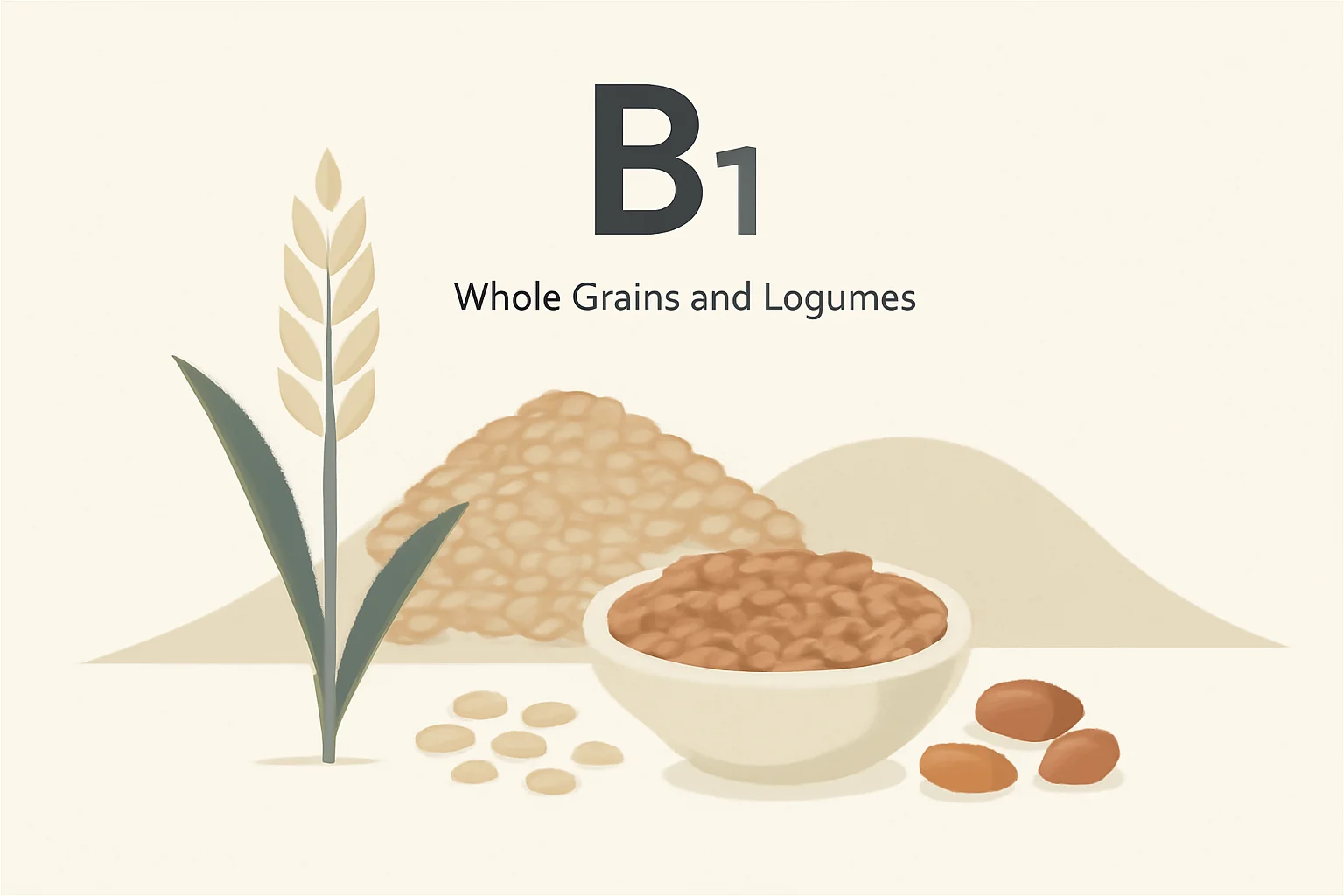
The Role of Vitamin B1 and Its Beneficial Effects on Our Health
The benfotiamine, also known as B1 vitamin, is a water-soluble vitamin that plays a key role in the body’s metabolism. Vitamin B1 is essential for the breakdown of carbohydrates and contributes to normal nervous system functioning. The human body cannot produce enough vitamin B1, so it is important that it is present in adequate amounts in our diet. A deficiency of this vitamin can cause numerous health problems, including fatigue, nervous disorders, and cardiovascular diseases.
The sources of vitamin B1 vary widely. Its main sources include whole grains, legumes, nuts and seeds, as well as certain meats such as pork. Adequate intake of vitamin B1 is essential for well-being and a healthy lifestyle. Below, we will take a closer look at the beneficial effects of vitamin B1, its sources, and the consequences of deficiency.
The Role of Vitamin B1 in the Body
Vitamin B1, also known as thiamine, is crucial for the body as it participates in numerous biochemical processes. One of its most important functions is its involvement in carbohydrate metabolism. During the breakdown of carbohydrates, vitamin B1 helps in the production of energy, which is essential for the proper functioning of cells. Furthermore, vitamin B1 also contributes to the metabolism of proteins and fats.
The role of vitamin B1 is not limited to energy production. It also plays an important role in the functioning of the nervous system. Thiamine aids in the transmission of nerve impulses, which is essential for various muscle and nerve functions. A deficiency of this vitamin can cause fatigue, irritability, concentration difficulties, and memory disorders. Long-term deficiency of vitamin B1 can lead to serious nervous system problems, such as Wernicke’s syndrome, which is associated with coordination disorders and mental disturbances.
In addition, vitamin B1 has antioxidant properties that help protect cells from the harmful effects of free radicals. The role of antioxidants is also important in the prevention of chronic diseases such as heart disease and diabetes. Therefore, maintaining adequate levels of vitamin B1 is essential not only for boosting energy levels but also for preserving long-term health.
Sources of Vitamin B1
Natural sources of vitamin B1 offer a wide variety, making it easy to incorporate them into our diet. One of the best sources is whole grains, such as brown rice, quinoa, and whole wheat bread. These not only contain vitamin B1 but are also rich in fiber, which aids digestion and stabilizes blood sugar levels.
Legumes, such as lentils, chickpeas, and beans, are also significant sources of vitamin B1. Additionally, nuts and seeds, such as almonds, sunflower seeds, and pumpkin seeds, also contribute to meeting vitamin B1 intake requirements. These foods are not only rich in nutrients but also make for tasty snacks that can easily be included in daily diets.
Meats, especially pork, are also rich in vitamin B1. Fish, such as tuna and salmon, are also good sources of this important vitamin. For vegetarians and vegans, it is especially important to pay attention to vitamin B1 intake, as plant sources do not always provide the necessary amounts.
In addition to foods, vitamin B1 can also be taken in the form of dietary supplements. These can be particularly useful for those leading active lifestyles, athletes, and those experiencing stressful lifestyles. However, it is best to obtain our nutrients from natural sources, as vitamins are most effectively utilized by our bodies this way.
Consequences of Vitamin B1 Deficiency
A deficiency of vitamin B1 can cause serious health problems. The most common deficiency disease is beriberi, which indicates a severe lack of the vitamin. There are two main forms of beriberi: dry and wet. Dry beriberi primarily affects the nervous system, and its characteristic symptoms include weakness, muscle pain, and coordination disorders. Wet beriberi affects the cardiovascular system, leading to edema, heart failure, and other heart problems.
Vitamin B1 deficiency can also result in increased fatigue, irritability, and mood swings. People who do not consume enough vitamin B1 often experience difficulties with concentration and memory, which can affect their daily lives.
The risk of vitamin B1 deficiency may be particularly high for individuals who follow low-calorie diets or who do not include natural sources of the vitamin in their diet. Additionally, regular alcohol consumption can also contribute to vitamin B1 deficiency, as alcohol inhibits the absorption of the vitamin.
It is important to emphasize that to prevent vitamin B1 deficiency, attention should be paid to a varied and nutrient-rich diet. If someone feels they are experiencing symptoms of vitamin B1 deficiency, they should definitely consult their doctor, who can provide appropriate advice.
**Warning:** This article does not constitute medical advice. For health problems, always seek the opinion and advice of your doctor.

